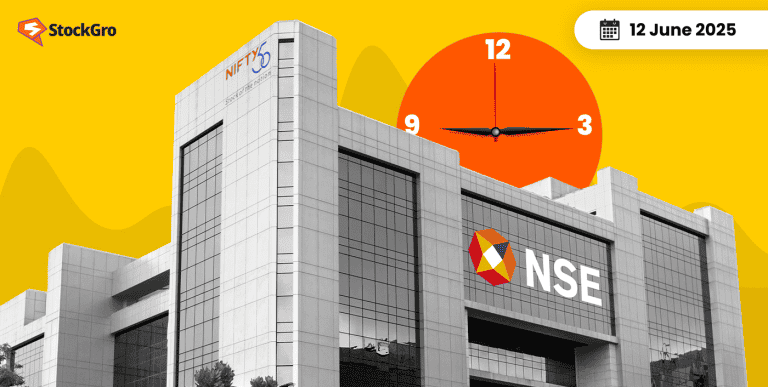
On June 12, 2025, India’s stock market faced a challenging session, with benchmark indexes dipping amidst growing global concerns. The Nifty 50 saw a decline of 0.16%, closing at 25,101.3, while the BSE Sensex fell by 0.2%, settling at 82,355.26. This drop was largely influenced by global geopolitical tensions and the lack of clarity around the U.S.-China trade deal.
The markets are also grappling with rising uncertainty in the Middle East, with escalating tensions between the U.S. and Iran threatening to disrupt global oil supplies. The geopolitical climate, coupled with trade uncertainty, has dampened investor sentiment across markets, including in India.
Global concerns impacting India’s markets
The uncertainty surrounding the U.S.-China trade deal has been a major cause of concern. Although U.S. President Donald Trump mentioned that a framework had been reached on tariff rates to revive the fragile trade truce, the absence of concrete details left investors anxious. The lack of specifics regarding the deal’s execution has kept global markets, including Indian stocks, on edge.
In addition to the trade uncertainties, Middle East tensions have exacerbated the situation. Iran’s threats to strike U.S. bases if nuclear talks fail are heightening security risks, which could drive up Brent crude prices. Given India’s dependence on oil imports, any rise in global crude prices would likely trigger inflationary pressures, further weighing on the stock market.
Also read: Liquor Stocks fall after Maharashtra Excise Duty Hike
Sector-specific impacts on India’s stock market
The IT sector, which relies heavily on revenue from the United States, was among the worst-hit on June 12. IT stocks, including major players like Infosys and Tech Mahindra, saw losses of around 1%. These companies earn a significant portion of their revenue from the U.S., so any uncertainty regarding the U.S.-China trade talks directly impacts their profitability.
Another stock facing significant losses is Paytm, which fell by 8.4%. This was triggered by India’s finance ministry refuting claims regarding the introduction of the Merchant Discount Rate (MDR) on UPI transactions. The delay in MDR implementation negatively impacts Paytm’s future earnings prospects, leading to a decline in investor confidence.
How are global tensions affecting India’s market?
India’s stock market is closely tied to global events, and geopolitical uncertainties are now influencing investor sentiment. The rising tensions in the Middle East are particularly concerning for India due to the potential impact on oil prices. A surge in Brent crude prices could exacerbate India’s inflationary pressures and put a strain on the country’s economy.
Moreover, the trade tensions between the U.S. and China could lead to disruptions in global supply chains, affecting India’s exports and manufacturing sectors. The uncertainty over the deal’s final approval has created an environment of caution, further contributing to the market’s volatility.
Also read: Tata Group stocks lead Nifty 50 surge in Two-Month Rally
Should investors be worried about the current market conditions?
The current market dip, while concerning, reflects the broader global uncertainties that are affecting many other stock markets. However, analysts suggest that investors should remain cautious but not panic. The markets could see some short-term volatility until more clarity emerges regarding the U.S.-China trade deal and geopolitical developments in the Middle East.
For long-term investors, this may present an opportunity to reassess portfolios and focus on sectors that are less affected by global uncertainties. It is important to focus on the fundamentals and wait for clearer signs of progress in global trade talks before making any major investment decisions.
Also read: Tata Group stocks lead Nifty 50 surge in Two-Month Rally
Conclusion
India’s stock market is currently in a period of heightened volatility, driven by global geopolitical concerns and trade deal uncertainties. While these factors have weighed heavily on investor sentiment, it’s essential for investors to remain cautious and assess their risk exposure. Short-term declines may present opportunities for long-term investors, but staying informed about global developments will be key to making smart investment choices in the coming weeks.

